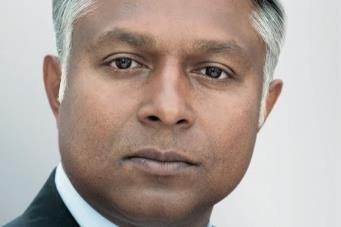DWS has rejected allegations made by a former employee about the asset manager making misleading disclosures about its investing practice with regard to environmental, social and governance (ESG) considerations.
In a statement issued yesterday evening, DWS said the allegations being made by the former employee were unfounded and that it “stands by” its annual report disclosures.
Earlier this month the Wall Street Journal (WSJ) published an article in which Desiree Fixler, who was chief sustainability officer at DWS, is referred to as saying that she believed DWS misrepresented its ESG capabilities. The article contrasted statements from an internal document with statements in the asset manager’s 2020 annual report, released in March.
Fixler, who according to her LinkedIn profile joined DWS in June 2020 from alternative credit manager ZAIS, was fired in early March. She has reportedly filed an unfair dismissal case against DWS in Germany.
In the WSJ article a DWS spokesman is referred to as saying the sustainability office led by Fixler did not gain the expected traction on creating or showing an action plan.
In its statement yesterday evening, DWS said it had always been clear in its reporting.
It said that in its 2020 annual report it differentiated between “ESG Integrated AUM” and “ESG AUM” when presenting its assets under management.
DWS said it referred to ESG AUM as “ESG Dedicated” and that “ESG Integrated” assets under management were not counted towards the firm’s “ESG AUM”.
“As we disclosed in our annual report 2020 on page 90, DWS labelled strategies as ‘ESG Integrated’ if they were actively managed and included coverage of ESG data (the overall SynRating) on more than 90% of the portfolio,” wrote DWS.
DWS’s SynRating rates companies on their performance, relative to peers, against environmental, social and governance criteria.
DWS said “ESG Integrated” assets under management were not counted towards the firm’s “ESG Dedicated” AUM.
Last year DWS announced a new approach to integrating ESG factors that it said would strengthen its stewardship practices.
BaFin, the German regulator, is understood to have launched an investigation into DWS, as US authorities are reported to have also done.
A spokeswoman for BaFin said the regulator does not comment on individual companies. It evaluates the annual audit reports for each fund and each capital management company under its supervision and will investigate indications of a violation of ESG guidelines if there are any, she said.
“The same applies to information that we receive from investors, whistleblowers or the press,” she added.
Asset managers, other investors, and corporates have become increasingly keen to proclaim ESG-related credentials in recent years, a trend that has been paralleled by growing concerns about the credibility of such claims in the absence of consistency in ESG terminology and minimum criteria.
Governments and regulators are increasingly seeking to avert “greenwashing”. The EU has developed the Sustainable Finance Disclosure Regulation while the UK’s Financial Conduct Authority and Germany’s BaFin have both recently taken steps to set out guidelines for funds marketed with a sustainability or ESG focus.











